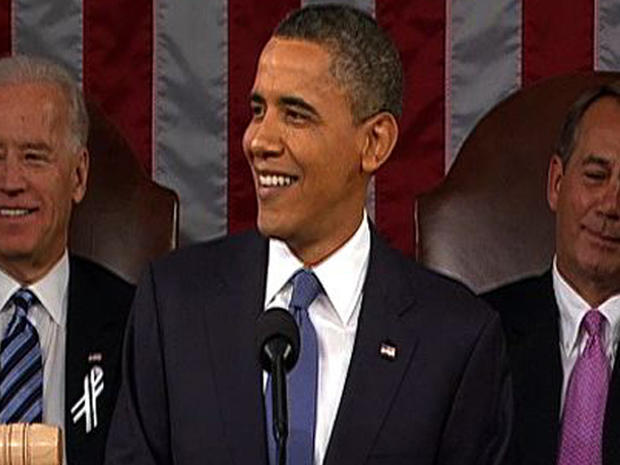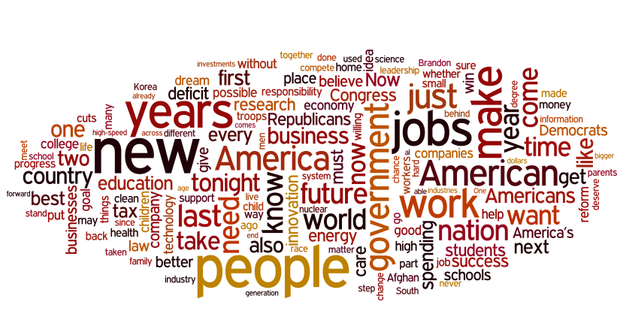The Commander in Speak: Parsing Obama's Speech
As any political observer knows, partisan gridlock isn't just a fight over policy, it's a war of words.
Before President Obama had even uttered a word of his State of the Union address, one rhetorical battle line had already been drawn. Republicans issued a clear warning on the Sunday talk shows: When the president says "investing," don't be fooled. He means "spending."
Sure enough, the president used a variant of "invest" 13 times when talking about the economy and education during his speech. (He used "spend' just as frequently but only in the context of cutting or freezing spending).
Ben Zimmer, who writes the "On Language" column for the New York Times, says one reason the GOP launched the preemptive strike is because they sense the president has rediscovered his linguistic edge in recent weeks.
"Republicans recognize they are at rhetorical disadvantage," Zimmer said. "Obama has been on an upward path lately with improved popularity and the Tucson speech in part was something that ... established Obama as speaking from a position that is really above the fray."
Indeed, during the State of the Union, the president skillfully invoked the Tucson tragedy in his call for civility and used "family" as a unifying metaphor. As the word cloud below illustrates, Mr. Obama leaned heavily on the words "future", "America" "new" and "people" to bolster this message.
Zimmer notes that Mr. Obama also deftly used spatial metaphors to make his points - specifically "moving up" in order to transcend partisan politics and "moving forward" to the future. Accordingly he repeatedly rejected the notion of "going back" to the tired ideas of yesterday.
The figurative language didn't always score points for the president. Zimmer points to an airplane analogy that Mr. Obama made when talking about slashing key investments (not spending, of course): "Cutting the deficit by gutting our investments in innovation and education is like lightening an overloaded airplane by removing its engine," Mr. Obama said. "It may feel like you're flying high at first, but it won't take long before you'll feel the impact."
"It struck a sour note," Zimmer said, adding that the grim "impact" analogy should have been recast.
Traditionally Republicans have been more adroit at spinning language and rebranding hot-button issues ("death tax," "death panel," and "government takeover of health insurance" are just a few examples). But Zimmer says a Democratic effort to level the rhetorical playing field (in part led by linguist George Lakoff) seems to be working.
It might also be helpful that Republicans have stumbled a bit.
When asked about the State of the Union, House Majority Leader, and vocal Obama critic, Rep. Eric Cantor reiterated that the GOP wants to be the "cut and grow" Congress - a play on "tax and spend" that falls flat, Zimmer says.
"'Cut and grow' doesn't sound like a winning catchphrase," he said. "It sounds like 'cut and run.'"
As for President Obama, his three-word slogan of the night was "win the future." As CBS News political analyst John Dickerson notes, the president used a variant of the slogan 11 times. The theme seemed to resonate (a CBS poll shows 9 in 10 Americans approved of his State of the Union proposals) - and sounded very much like a possible 2012 slogan.
But Zimmer notes that the president hardly has linguistic ownership of the phrase. For starters, Newt Gingrich called his 2005 book "Winning the Future." But perhaps the biggest obstacle to Mr. Obama using it as a campaign slogan? The domain WinTheFuture.com has already been registered with the Oregon Republican Party.

